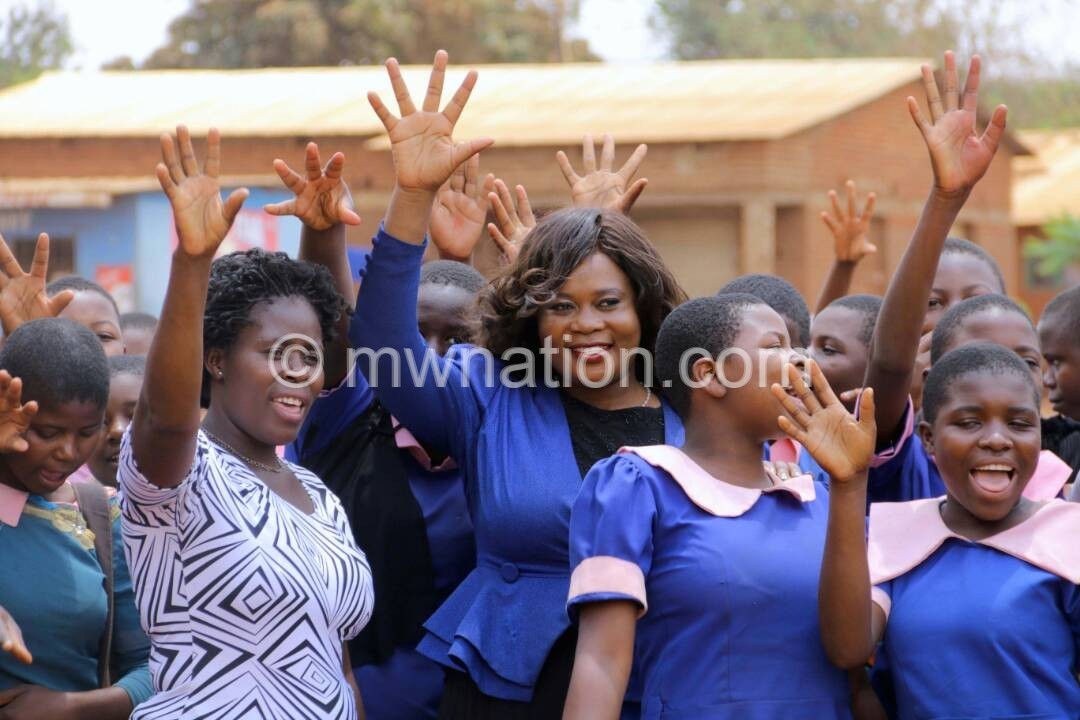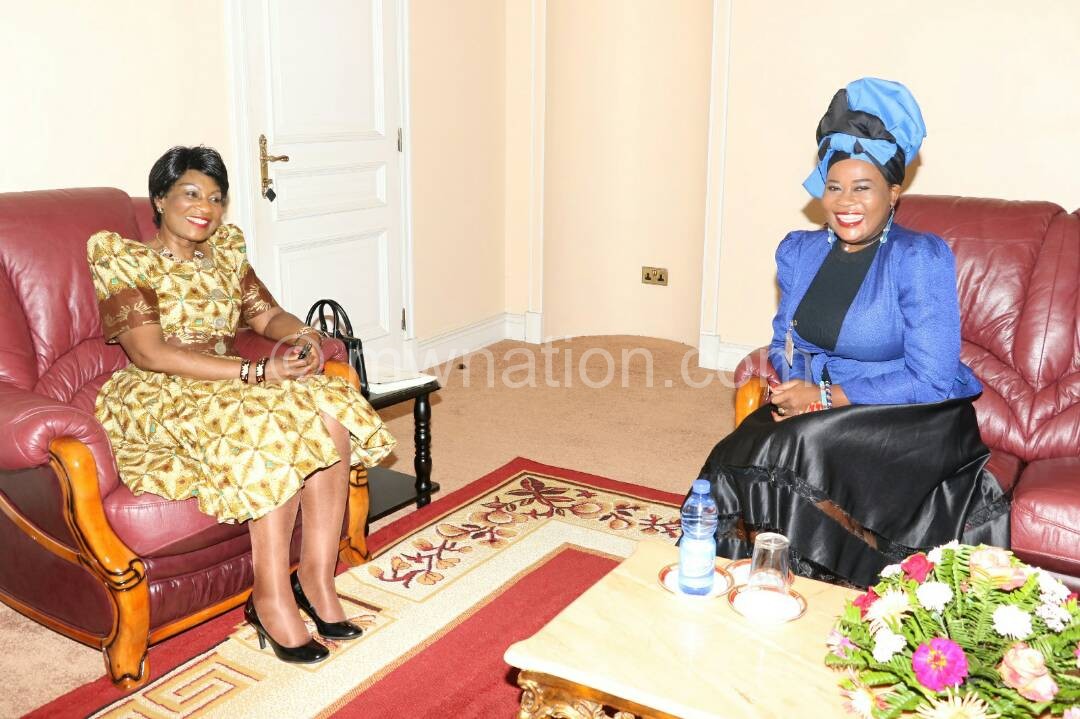Natasha Tonthola: Rescuing girls from social ills
She is widely known for her participation in the 2013 race for the Big Brother Africa prize money. The confident and easy going former housemate Natasha Tonthola is now an activist for women’s and children’s rights.
An orphan and a victim of school dropouts, early pregnancy, early marriage and gender-based violence (GBV); she is poised to complement the efforts of government and non-governmental organisations (NGOs) in keeping girls in school. Hers is a mission to ensure that no girl drops out of school because of menstruation or lack of appropriate underwear or sanitary wear.

Aged 29, the mother of one who is also looking after 14 of her extended family members, is keen on protecting the environment and has since innovated eco-friendly reusable sanitary products dubbed Maft’s reusable sanitary napkins and diapers which she claims are 100 percent bio-degradable.
“Since 2004, I have been implementing Project Dignity to keep girls in school. Under this project, I designed underwear and eco-friendly reusable washable napkins to ensure that girls do not miss classes when menstruating and that they do not drop out of school due to lack of appropriate underwear. I have so far managed to identify 1 000 marginalised girls across the country in all 28 districts of the country as beneficiaries of the project,” she says.
After piloting Project Dignity, it was officially launched in 2015, earning her a nomination for the Youth Citizenship Entrepreneurship 2016 Challenge under the best project category. She won the first prize in Berlin, Germany.
The 29-year-old was also nominated and shortlisted as a finalist for the Nelson Mandela and Graca Machel 2016 Innovations Awards for her efforts in liberating the girl child and for innovating the reusable washable napkins.
In 2011, she was elected good will ambassador for girls with physical disabilities by Kachere Rehabilitation Centre, a national framework which supports and cares for people living with physical disabilities.
“This was based on my efforts in fighting for inclusiveness and social justice and campaigning for girls with physical disabilities to have access to education,” she explains.
Maft also focuses on workplace and household gender-related issues as well as empowering the youth and women economically by giving them tools and skills for sustainable livelihood in the communities they live in.
The young activist, who has gone into all these initiatives based on her real life experience, holds diplomas in several areas including HIV and Aids and Nutrition; community development; business management and fashion designing. She also holds certificates in HIV Testing and Counseling (HTC) as well as in television presentation and also cosmetology.
As a campaigner for girls’ rights, she has conducted 228 outreach programmes in both primary and secondary schools in rural areas across the country.
“We have sensitised girls on issues of early marriages, school dropouts, drug and substance abuse; how to cope with adolescence as regards sexual reproductive health education, career talks as well as HIV and Aids issues.
“In all these activities, we involve traditional leaders, parents, boys and teachers. Over 80 000 girls have been reached across the country during the campaign from 2004 to 2016 and the campaign is ongoing,” she says.
Through Maft’s go back to school campaign, Tonthola says she identified 3 000 child brides and has so far freed 556 from child marriages and sent them back to school.
Tonthola is the first born in a family of five children. They lost their father when they were still very young and now she looks after her mother, siblings and members of the extended family.
“You know there is a saying that goes ‘charity begins at home’. So, apart from the 20 girls I am paying school fees for, I pay fees for my siblings and others in my extended family,” she explains.
The charity is currently self- funded. “I do everything out of passion because of my humble background, but as an organisation, we are doing all we can to source funding,” she says.
The biggest challenge Maft is currently facing, she says is its weak financial muscle to reach out to millions of girls who at the moment are victims of school dropouts, HIV and Aids; early marriages and pregnancies; child trafficking and all forms of abuse.
“It becomes difficult to support all of the identified girls due to lack of adequate resources. My project provides sexual reproductive health education and we are advocating and raising awareness against harmful traditional practices; and also breaking the silence, myths and taboos surrounding menstruation.
“The other challenge we have, as you might be aware, traditionally, sexuality is never a public discussion so, it is always hard to break the ice and discuss these issues with the communities we work with. However, in our best approach, we involved traditional and religious leaders, mother groups, teachers and men. It’s not easy, but at the end of the day, we break the silence,” says Tonthola.
She dreams of one day launching a global campaign called bleed green (bleed with pride) which will focus on raising awareness on the dangers of using disposable sanitary products on both human health and well being.
“The idea is for women to eventually switch from disposable sanitary products to reusable washable napkins. We plan to partner with other organisations so that we are able to produce these products and make them available across the region.
“We will do this to promote environmental sustainability and fight climate change by use of eco-friendly innovations as an alternative to replace disposable sanitary pads and diapers because they do not bio-degrade. We would also like to ensure that every girl in primary and secondary schools receives a free kit of reusable washable napkins to keep them in school,” she says.





